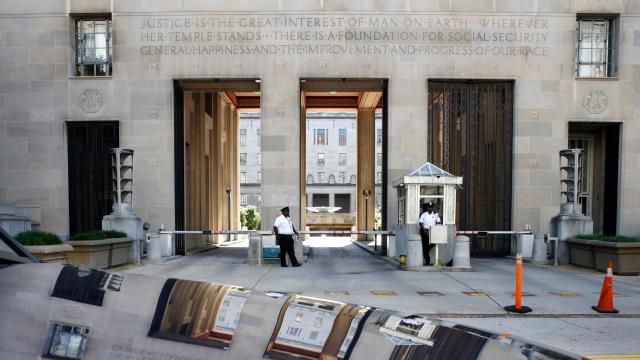U.S. Federal authorities, including the U.S. National Institutes of Health (NIH) and the FBI, are in the middle of a sweeping crackdown on what they believe is widespread Chinese scientific espionage in the biomedical field, the New York Times reported on Thursday, with nearly 200 such inquiries ongoing. Meanwhile, others have suggested the effort is targeting scientists of Chinese descent in the U.S. in a manner resembling racial profiling.
According to the Times, nearly all of the incidents that have been discovered or are still under investigation “involve scientists of Chinese descent, including naturalised American citizens, allegedly stealing for China.” Some 71 institutions ranging from medical schools to research laboratories are investigating around 180 suspected intellectual property thefts, the paper wrote, with the NIH referring some 24 instances to the inspector general at the U.S. Department of Health and Human Services.
The DOJ’s ongoing crackdown against scientists suspected of IP theft coincides with the ongoing U.S.-China trade war, which has only slowed down recently and could easily re-ignite any time, and a generally antagonistic relationship between the two countries under Donald Trump’s administration.
The U.S. has reportedly accused several large Chinese technology companies, such as telecommunications giants Huawei and ZTE, of potentially engaging in espionage on behalf of Chinese security services and trade theft.
At MD Anderson Cancer Centre, according to the Times, cases involved a scientist who was caught emailing a confidential research proposal to colleagues in China and a scientist caught carrying a case of hard drives to the airport. The NIH sent letters between August 2018 and January 2019 asking the institution to look into five faculty members following tips from the FBI and other sources.
In one instance, a scientist allegedly told Chinese colleagues he “should be able to bring the whole sets of primers to you (if I can figure out how to get a dozen tubes of frozen DNA onto an aeroplane).” Another case, which is still being disputed, involved a couple who worked at the Nationwide Children’s Hospital in Columbus accused of using its technology to apply for patents and start companies in China.
However, other cases may involve Chinese nationals who simply took state-funded jobs back home during summer break and did not realise that was in violation of federal terms of funding. That was the line of the defence offered by Peter R. Zeidenberg, an attorney representing University of Kansas chemist Feng Tao, who is facing four federal charges for alleged failure to disclose a Chinese university position.
“Professors, they get their summers off,” Zeidenberg told the Times. “Oftentimes they will take appointments in China for the summer. They don’t believe they have to report that… The next thing you know, they are being charged with wire fraud with 20-year penalties. It’s like, are you kidding me?”
Another scientist fired from Emory University in Atlanta for receiving Chinese funding, Dr. Li Xiao-Jiang, told the Time, “They treated us like criminals… Our work is for humanity. You can’t say if I worked in China, I’m not loyal to the U.S.”
University of California Hastings School of the Law law professor Frank Wu told the paper that Chinese and Chinese-American academics are worried “that they will be targeted and that they are at risk.” The Times noted that the U.S. Department of Justice has dropped four cases against Chinese-American academics since 2014.
The DOJ recently warned that cases involving Chinese trade theft are on the rise, though that it wasn’t sure this was due to increased occurrences or more culprits being nabbed by authorities. The Chinese government has, in turn, accused the U.S. of simply trying to undermine their technology industry and development to shield Western firms from competition.
